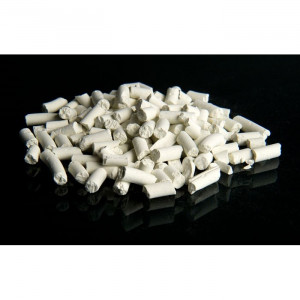| Kharazmi Technology Development |

| Registration Date | 25 Nov 2020 |
| Revision Date | 25 Nov 2020 |
| Share |
Petroleum Well Treatment
Sulphur catalystenhanced adsorption high reactive surface area
Hydrogen sulfide (H2S) is considered as one of the deleterious agents in the feedstock of reformers. In Midrex plants, apart from H2S presentce in natural gas, a nearly high amount of H2S would be added into the processed gas contacting with iron ores. Therefore it is highly essential to remove this content. This material can adversely affect the efficiency of catalysts loaded into the reactors and reduce the catalytic activity of the catalysts during the operation since it is easily adsorbed by nickel metal and occupies the catalyst active sites. Zinc oxide adsorbent proved to be the most effective and economic material for sulfur compounds removal and H2S in particular. Zinc oxide, due to its high equilibrium constant, is one of the most important agent for removing sulfur from natural gas, synthetic gas and carbon dioxide flows in the petrochemical and steel industries, commonly used at temperatures of 370 ° C. Zinc oxide nanostructured adsorbents are due to their high surface area, high reactivity and structural integrity, are highly efficient.
KhTD Co. manufactured several grades of ZnO adsorbent to be applied for the purification of feed gas of Midrex & PERED reformers in order to bring down the H2S concentration less than 0.1 ppmv.